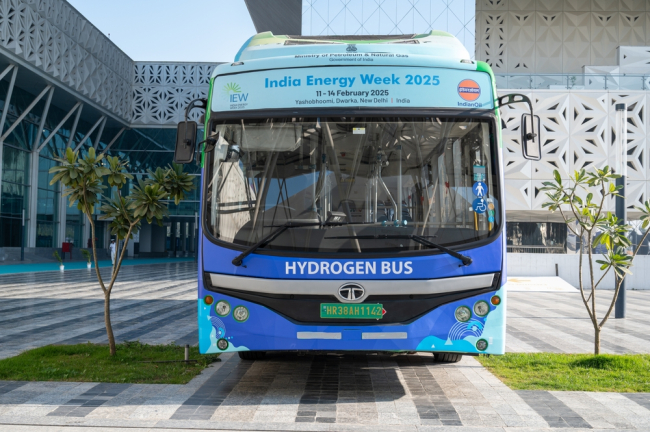Gas Pains: What to Do About France's Shales

Like other countries in Europe, France has the potential to produce both oil and gas from shale. In the Paris Basin, where oil has been exploited for decades, oil shale quite similar to the Bakken play in North America has considerable promise due to new drilling and exploitation techniques. The potential for shale gas in the South east is less well known and needs to be assessed.
The advent of shale gas in the US has been impressive. In just 5 years, the US is producing about twice the annual consumption of France - or 90 BCM. High gas prices in 2005 and subsequent years made hydraulic-fracturing and horizontal drilling economically possible and operators rushed to get in the game. These new volumes have transformed gas markets and made US self-sufficient in gas as well as reversing for the first time in over a decade the decline in US hydrocarbon liquids production.
But this shale gas revolution has come at a price. The nature of land and subsoil ownership in the US and the relatively easy availability of drilling rigs and access to gas pipelines brought many operators to this new opportunity. Specific regulatory measures were not in place, technical standards for well integrity and handling of fluids used in fracturing the shale were poorly regulated. The result is that errors were made, well integrity was not always ensured and citizens in surrounding areas became concerned about possible ground water contamination, toxic surface water runoff and the possibility of seismic events being precipitated by the explosions of the fracturing process.
Local, State and Federal authorities are sorting through resulting claims of environmental damage to determine which events can be linked to shale gas production and which have either no basis or other origins. Thus far, there are no cases of hydraulic fracturing induced incidents but there have been cases of insufficient well integrity and poor surface water management. For the citizen, the distinction among these causes is not important. The recent movie “Gasland” dramatically raised anxiety about hydraulic fracturing, just as it set out to do, but Oklahoma state authorities have reviewed the incidents in Oklahoma depicted in Gasland and made public their findings. (HTTP://cogcc.state.co.us/library/gasland%20doc.pdf)
France is not Oklahoma - so a robust public information campaign will be needed to address citizens" concerns here before France will decide its course of action.
Shale oil and gas have been put on hold in France by politicians of all political stripe. As no one is exploiting them now, this is a cause without much cost (except to frustrated investors) that can serve electoral purposes. But at some point, France will want a candid appraisal of the costs and benefits of shale oil and shale gas. That may have to wait till after the 2012 presidential elections.
In the meantime, work needs to be done to prepare the way. France can draw on the experience of US local, state and federal authorities to design a regulatory program, industrial standards, and safety standards to govern any new fracturing activities. (Fracturing has been going on in France for years) Mining codes need review to ensure that the benefits of shale oil or shale gas production flow in some measure to the localities that will be host to and bear the burden of these activities.
French citizens have the right to demand a dispassionate discussion of the oil and gas potential from French shale formations and decide for themselves whether the benefits outweigh the costs. No source of energy comes without some cost somewhere as we have seen dramatically these last days. The film “Gasland” served the purpose of raising awareness of shale oil and gas, but it should certainly not be the basis for renouncing their potential benefits before we even know what they are.

Available in:
Regions and themes
Share
Related centers and programs
Discover our other research centers and programsFind out more
Discover all our analysesIndia’s Green Hydrogen Strategy in Action: Policy Actions, Market Insights, and Global Opportunities
India is poised to remain the world’s fastest-growing major economy, and this rapid growth is driving a sharp rise in energy demand. As the most populous country on the planet, India urgently needs to decarbonize its energy systems.
Water in Mexico: an Emergency that Will Wait
Access to water is already and will become increasingly problematic for Mexican economic actors due to the progressive scarcity of the resource resulting from climate change, a geographical distribution that does not coincide with that of the population or economic activity, and management that has so far been far too lax.
AI, Data Centers and Energy Demand: Reassessing and Exploring the Trends
The information and communication technologies sector today accounts for 9% of global electricity consumption, data centers for 1-1.3%, and artificial intelligence (AI) for less than 0.2%. The growing energy demands of cloud services first, and now AI workloads (10% of today’s data centers electricity demand), have exacerbated this trend. In the future, hyperscale data centers will gain shares amongst all kinds of data centers and AI will probably account for around 20% of data centers electricity demand by 2030.
Unlocking India’s Energy Transition: Addressing Grid Flexibility Challenges and Solutions
India is rapidly scaling up its renewable energy (RE) capacity, adding 15–20 GW annually, but the ambitious goal of 500 GW of non-fossil capacity by 2030 is at risk unless the pace accelerates.











